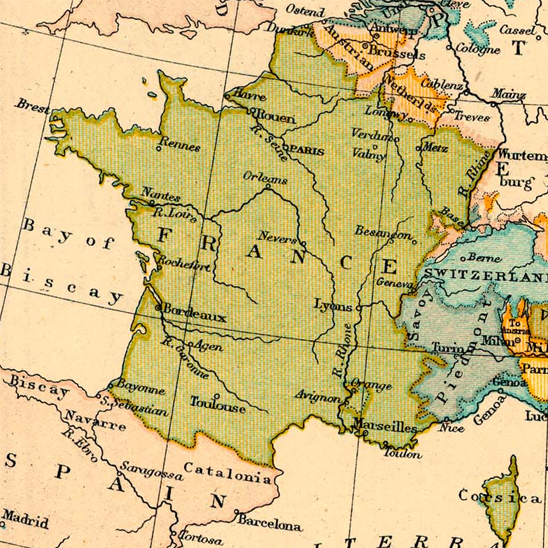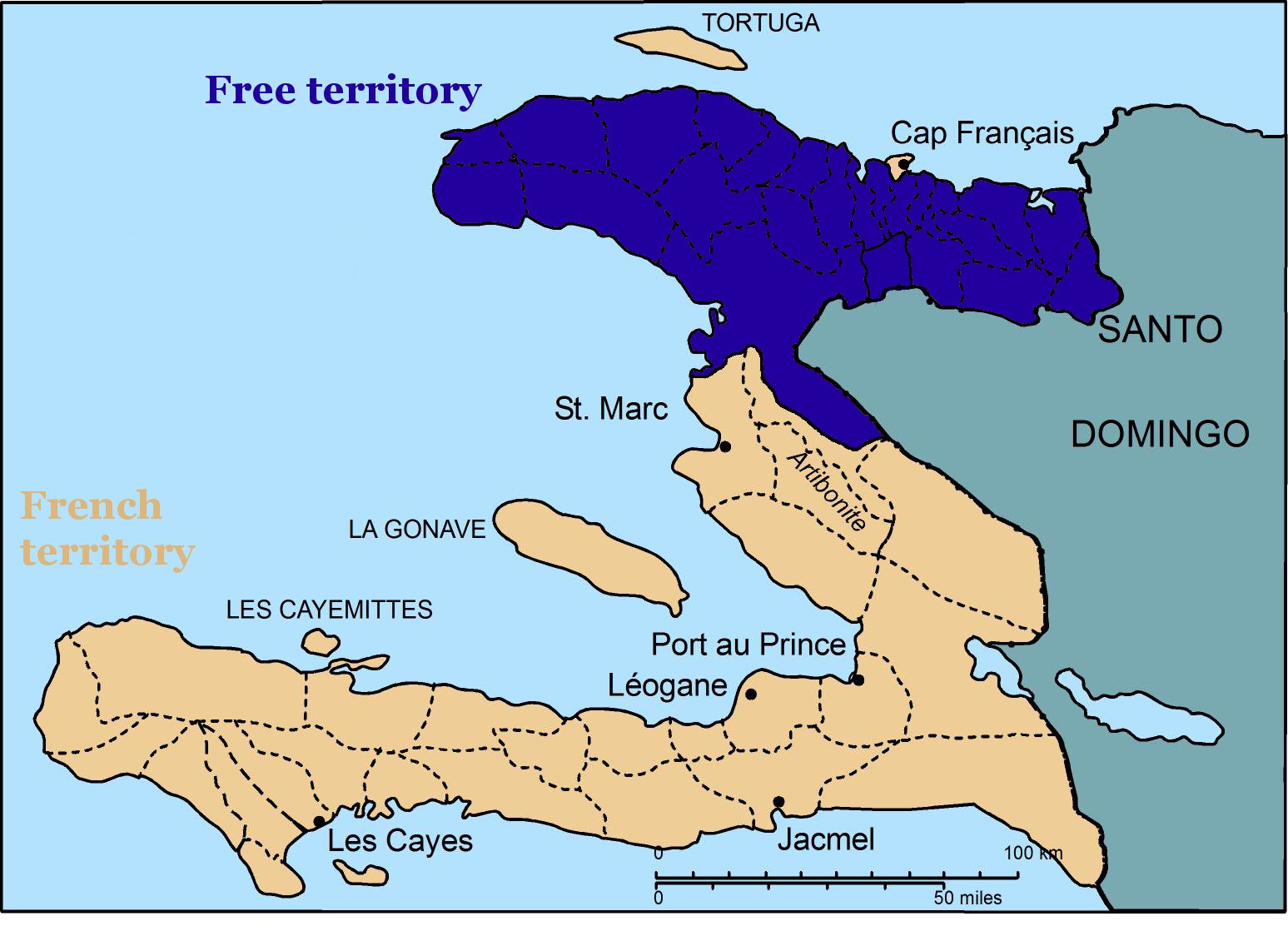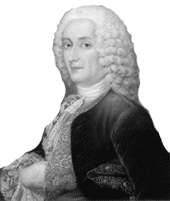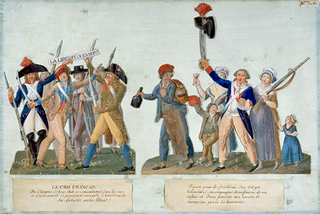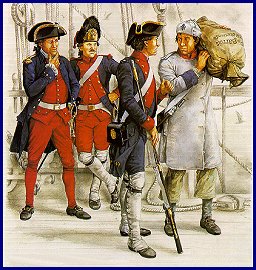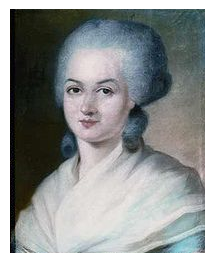|
a bad enough dude posted:
Agreed.
|
| # ? Nov 12, 2012 20:31 |
|
Louis XVI, By the Grace of God, King of France and Navarre The crown cannot in clear conscience support so-called Franco-Mysorian Treaty of Friendship And Mutual Assistance. Right now our army is in terrible state and the fleet is pitiful. If the British were to declare war right now, we wouldn't survive it. Even if this act passes, it will be vetoed. We also can't agree to the Emigre Divestment Act. Such matters should be investigated by the courts. The Assembly is not the body that should give judgement against anyone, especially someone whose testimony haven't even been heard. All other acts will be signed if they are passed. Even General Suffrage, which we do consider a terrible mistake. As for the St Dominigue, before we can consider abolishing slavery, the bandits who burn plantations and kill landowners should be swiftly dealt with. We will approve a military intervention there.
|
| # ? Nov 12, 2012 20:37 |
|
Jean Raussut, a member of the Legislative Assembly who is notorious for being sympathetic to the goals of the Haitians, sent a letter to the King's counsellors. Here is an excerpt: Your Majesty, if it may be permitted to say, Toussaint Louveture actually was responsible for safely evacuating many white landowners from the island, and has, in numerous cases, sought to control the rabble that are the revolutionaries, holding them off from rioting. While the revolution has its unsavory elements, M. Louveture has done much to turn his fighters from brigands to professionals. ... Likewise the main opposition of the revolution is not to France itself but the colonial administration and the institution of slavery. French soldiers would likely only antagonize the revolutionaries further and, should the revolution prove victorious, spoil any chance we Frenchmen would have to reconcile our relationship with the island.
|
| # ? Nov 12, 2012 20:47 |
|
 The Most Virtuous and Secret Diary of Robespierre ...the King refuses to understand the Haitian situation. Does he not realize that the vast majority who now take up arms against the colonial administration do so to rid themselves of the chains of slavery? Does he not realize the benefits, both tangible and intangible that would come from ridding them thus? I fear he is too nearsighted in this matter. At the same time, an abolishment of the colonial administration is exceedingly hasty. An independent Haiti would be incapable of self-sufficiency and easy prey for the first colonial power to set their eye upon it... ...And he refuses to appropriate the property of the enemies of the Revolution who have fled! Perhaps we will have to approach the problem from another direction...at least he sees reason on the matter of the franchise.
|
| # ? Nov 12, 2012 21:02 |
|
 From a personal letter from Napoléon Bonaparte to an old friend "[...] I was informed today that the King authorised a deployment to Haiti. Blessed may he be, for I doubt I could have in good conscience continued my service for a country that would let the Haitians go and not also grant the Corsicans the same treatment. Some consider Haiti a lost cause, but victory there is vital in more ways than one. France cannot afford to lose morale by conceding defeat without putting up a proper fight, and its armies need vital experience. [...]"
|
| # ? Nov 12, 2012 21:34 |
|
 Turns are due in an hour. Get them in if you haven't already! If you command a faction in the Assembly, let us know how you want your members to vote on the proposals currently up for debate (if you haven't done so in the thread already). You're also free to do this if you aren't in the Assembly, you might sway independents to vote one way or the other. Turns are due in an hour. Get them in if you haven't already! If you command a faction in the Assembly, let us know how you want your members to vote on the proposals currently up for debate (if you haven't done so in the thread already). You're also free to do this if you aren't in the Assembly, you might sway independents to vote one way or the other. 
|
| # ? Nov 12, 2012 21:59 |
|
Nicolas Luckner From the private Journals of Nicolas Luckner. -utter shambles! Why didn't I listen to Mama and Papa when I was younger? I could have been an Actor! Now I'm the head of a ship with no crew, no sails, no steering wheel and no hull! And those bastards in the assembly expect me to fight a war for them? The only way we can hope to win is if we drown the enemy in the blood of our own slaughtered men! The only ray of light is my plan; the Prongs! They'll save me... I hope they save me. I spent all the time I had spare from my various drunken stupors working on the Prongs! I just pray something will come out of it. -upstart bastard! That damnable Napoleon is at it again. “You shouldn't drink so much! Why don't you try giving a speech! Please stop looking at me like that!” Who the hell is he to tell me what to do?! He's a nobody, and always will be a nobody! But why the hell does he have to have such beautiful hair?
|
| # ? Nov 12, 2012 22:01 |
|
 Antione Barnave Though the hour grows late, I still must make one final plea. In the rigors of debate, I notice that the topic of the current famine has been pushed aside. This is unconscionable. I applaud those who support a budget for improved investments in the nation's agriculture, but the current state of famine makes relief from such expenditures a distant prospect. I would again propose to his Majesty and to the Assembly that funds be spent for immediate food relief for those struck by shortages and crippling prices. If a nation can not feed its people in emergencies, then a nation has failed its people. Vote yes for the Food Relief Act of 1791. Dieu bénisse la France. Dieu guide l'assmebly. Dieu bénisse le roi.
|
| # ? Nov 12, 2012 22:03 |
|
IPlayVideoGames posted:
 Where are the funds to come from? While I am certainly sympathetic to those starving (and have already taken steps to alleviate their suffering), I believe that the entire costs of feeding Paris should fall upon the Aristocracy and Monarchy. After all, France fed them for 400 years. It is time for them to feed France! (Will enter this as The Amended Food Relief Act.)
|
| # ? Nov 12, 2012 22:20 |
|
sniper4625 posted:Where are the funds to come from? While I am certainly sympathetic to those starving (and have already taken steps to alleviate their suffering), I believe that the entire costs of feeding Paris should fall upon the Aristocracy and Monarchy. After all, France fed them for 400 years. It is time for them to feed France! The crown already took action to take care of the starving people. This king will not abandon his subjects in time of hunger.
|
| # ? Nov 12, 2012 22:24 |
|
I was bored, made prints translucent for some reason Robespierre  King Louie  Barnave  Brissot  Luckner  Hector 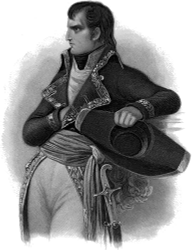  Napoleon 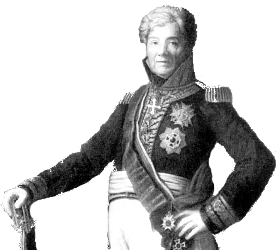 Bachmann 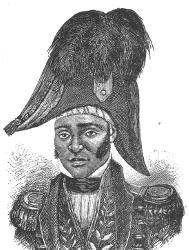  Toussaint  Archbishop  Babeuf  Saint-just  guess  talleyrand  Duport-Dutertre  Comte de Provence, Kings lil bro  brit ambassador  American ambassador  Tuffin  Armand Marc  Comte de Rochambeau  Citizen Equality whew. if you're not included and want me to make it just ask, though for some I couldn't find a print.
|
| # ? Nov 12, 2012 22:33 |
|
sniper4625 posted:
Georges Cadoudal You would starve the provinces to feed the hellish maw of Paris. You have no love for the people, only a desire to see your own power grow!
|
| # ? Nov 12, 2012 22:56 |
|
Jacques Pierre Brissot Girondins in the house You will of course pardon me for being late - I was unfortunately detained by a rather unpleasant and unusual incident involving my bathroom, a young woman, and a knife. Unusual in that it was unpleasant, that is. I see you have all made a splendid start at legislation, and so it falls to me to lend my humble support: Budget: De Sade is, as always, a visionary. I applaud his efforts. Proposals The General Suffrage Act and The Citizen-Soldier Act: I refuse to lend my support to a half-measure of freedom such as the Citizen-Soldier Act endorses. Representation doled out under such stringent regulations cannot be called liberty! General Suffrage or nothing. Ending Slavery: We have moved past the Colosseum, we have ceased to sacrifice lambs to our gods, we no longer peer into the guts of birds to see the future. Why, then, do we cling to this relic of ancient times? Slavery must be abolished. Emigre Divestment Act: I would divest them only of their titles. If this gains no support, then I reject the act in its entirety. The Colonial Independence Act: Our colonies should only be confirmed in their independence when they are no longer dependent on France. I do not feel this time has come. The Saint Domingue Act: I support the creation of a daughter nation in Saint Domingue, along the same lines of reasoning as above. The Matter of Mysore: I support such an endeavour. To all other acts, I offer no opinion one way or another. Vote with your conscience - assuming such a thing as a conscience is permitted in the Assembly. Perhaps next session it will not.
|
| # ? Nov 12, 2012 23:52 |
|
Thanks for the portraits, A Bad Enough Dude! Comte d'Esting Whichever version of Suffrage the Legislature and King decide to pass, whether it's through Service, General, or Universal, women are going to be allowed to vote, right? Right???
|
| # ? Nov 13, 2012 00:45 |
|
 JOIN AS WHOEVER! ALWAYS OPEN! TURN DUE WEDNESDAY, NOVEMBER 14TH AT 6:00 PM EST to qu0pr0quid001@gmail.com AND vanhelsing420@gmail.com JOIN AS WHOEVER! ALWAYS OPEN! TURN DUE WEDNESDAY, NOVEMBER 14TH AT 6:00 PM EST to qu0pr0quid001@gmail.com AND vanhelsing420@gmail.com  News for Autumn 1791 - Turn 1 NEWS FROM THE 1ST FRENCH ASSEMBLY: - King Louis XVI appoints the Marquis de Sade as Controller-General of Finances, who resigns from the Legislative Assembly to take the post. On the same day, the comte de Narbonne-Lara is dismissed as Minister of War and replaced with Nicolas Luckner. The comte is bitter about the dismissal and the loss of personal prestige, but he is sated by a mansion, as a gift from the King himself. - With support from the Montagnards and the Feuillants in the Assembly, the Citizen-Soldier Suffrage Act passes and is signed into law by the King, over the opposition of the Enragés and the Girondins. As word of the bill spreads, membership in the French Army increases, drawing in many from among the poor and lower middle class. A Jew is caught attempting to join in Bordeaux, and despite his protests, is locked in a prison to await judgement. - A fierce debate in the Legislative Assembly over the budget breaks out, with the Feuillants winning many independents to their side as they stress moderation. The Jacobins fight tooth and nail to force the Girondins into a coalition but for the length of a week it looks as though they will abstain. Finally, in a command decision, Jacques Pierre Brissot instructs his faction to vote with the Jacobins. The budget of the Marquis de Sade passes. - The Food Relief Act of 1791 is met by legislative gridlock and fails to garner a majority of votes either for or against. It is still on the floor, should the legislature want to try again. - The French-Mysorean Friendship Treaty passes the legislature but the King refuses to sign the bill, citing the risk of war with Great Britain. The King may change his mind at any time. - The Montagnard-sponsored Emigre Divestment Act fails to pass due to a lack of Girondin support, being decisively struck down in the Assembly. - Due to the lack of a single unified vision on the abolition of slavery, and fierce resistance from independents, the various slavery proposals are shot down and tabled. Supporters vow to try again by Christmas. - The General Suffrage Act fails to pass, with opposition from the Feuillants and many independents. The idea of integrating Saint-Domingue with metropolitan France or granting it and the other colonies independence is laughed out of the Legislative Assembly by most of the legislators. DOMESTIC NEWS: - A sizable force of 4,500 soldiers from the French Army departs for the Caribbean, with approval granted by the King. Several precautions are taken against disease. - In late September, Father Jacques Roux and François-Noël Babeuf hold a rally in Paris down the Champs Elysée. There, they and several hundred supporters, calling themselves the “Enragés”, make loud speeches in support of universal suffrage and the redistribution of wealth. The group is able to reach the Place de la concorde and burn an effigy of the King thanks to the non-interference of the Parisian National Guard, hoping to prevent a massacre. The event alienates all but the urban poor, who find the two endearing, albeit a little misguided. - The event quickly spirals out of control with the arrival of the Marquis de Sade, who in a fiery speech steals the momentum from Roux and Babeuf and leads the crowds to the gates of the Palais du Luxembourg, where the few guards are overwhelmed and murdered. The Duc de Brissac - one time governor of Paris - and his family are captured, with de Sade turning the Palais into his own personal prison complex. Over the next day, mock trials are held for their new prisoners on trumped up charges of tax evasion, with most “mercifully” being spared the death penalty and instead becoming the Marquis’ “guests”. Rumors of torture abound. Many moderates demand the Marquis de Sade’s immediate removal from office, and cries of “Où a été Lafayette?” become common among the aristocracy. - This does not stop the two displaced radicals from forming the Enragés faction, a far left political club advocating popular democracy, price controls on food, and the immediate trial of the King. The new faction attracts poor Parisian workers and a handful of disillusioned petit bourgeois. Roux and Babeuf also form a Revolutionary Guard, a militia consisting of about 200 irregulars. - Jacobin clubs spring up in Marseilles and Lyon at the instigation of Saint-Just, spreading the ideals of the Revolution beyond the gates of Paris. Mere shadows of the Parisian organization, they look to Robespierre for guidance. - Reforms are undertaken in both the army and the navy. A new middle-class based command structure, the first of its kind in Europe, is promulgated in the French Army. Based on the “Luckner method”, it involves a heavy cooperation between all branches of the military and an apprenticeship system for junior officers. Many of the remaining aristocratic officers dislike being forced to tutor the sons of bank clerks on strategy, and a slow trickle of desertion leads many away from the army. The middle-class officers of the artillery corps fill the void, most prominent among them the young Napoleon Bonaparte, who receives a promotion to colonel. - His new command in Corsica soon earns a reputation for the twin virtues of discipline and innovation, with training exercises conducted nearly every day into the late hours of the night over a wide variety of terrain. Though drawn from lower-class stock, the men soon become as organized as the old Garde Royale. When not with his men, Bonaparte shuts himself into his quarters, pouring over maps of Hispaniola. - A Naval Bureau is formed with Charles Hector as the head. The organization is divided into an Atlantic division, based in Brest, and a Mediterranean division, based out of Toulon. Construction begins on a French ship-building and timbering network, but these efforts are slowed by a lack of adequate funding to the navy. Charles Hector further retires his three oldest ships so they can be used for training purposes in a Naval Academy. Again, though, France lacks the funds to staff an adequate academy, with the vast majority of the naval officer corps being royalists. - The Cathedral of Notre Dame celebrates All Saints’ Day, with the Archbishop of Paris taking the opportunity to implore the people of France to abstain from violence in the wake of the March on the Champs Elysée. He reminds them of the words of the Holy Father, and quietly condemns the act of swearing an oath to the state. Notably absent from the mass is the rector of the Cathedral, a notable juring priest who had been one of the first to sign the Civil Constitution. - Autumn of 1791 will be later known as La Guerre de Journaux, with various political parties creating their own personal newspapers in an attempt to win over the French public. Pamphlets advocating greater worker’s rights appear on the streets of Paris while the words of Antoine Barnave spread into middle class drawing rooms through a new paper called L'Ami de la France. De Sade forges his own radical and risque paper, with Babeuf appearing as a notable contributor. Leaflets on the role of the nobility from Saint-Just are spotted in salons. The sudden spark of publications leads to increased debate across France on the future of the nation. Literacy sees a minor increase. - In more serious literature, Saint-Just publishes his treatises on the French government, entitled The Spirit of the Revolution and the Constitution of France. The publication is ignored by most of the French public, either due to illiteracy or political leanings. A translation is published in the United Kingdom, where it sees limited popularity. - The King and his family are seen in almshouses throughout Paris, leaving large donations in their wake. During one of these visits, Queen Marie Antoinette remarks, "Qu'ils mangent de la brioche" which will be used as a rallying cry by Royalists for generations. Many Parisians grow more fond of the royal family. Members of the nobility are less impressed, despite being implored to participate. They refuse to associate with the common peasantry and admonish the King for forgetting his station. - Otherwise, the King is largely kept under lock and key by the National Guard, who escort him everywhere. This leads to some tensions with the Swiss Guard, who accuse the National Guard of trying to usurp their position. Nonetheless, most admit that the risk to the king is greatly diminished with Lafayette’s protection. - A delegation from Saint-Domingue arrives in November, appearing before the Legislative Assembly and describing in vivid detail the wholesale slaughter of the whites in the colony. They beg for assistance in maintaining the now endangered plantation economy. - Babeuf, in his seminal “Pour la Défense du Travailleur”, is the first to cement the idea of the “trade union” in social thought: an organization of workers and laborers formed for the purpose of collective bargaining. He goes so far as to encourage the citizens of France to form them. This runs in direct opposition to both the law and popular opinion, and wins him few friends in the country. - The National Guard is purged of undisciplined recruits during a month-long series of robust training exercises and drills. 5,000 largely unqualified men abandon the organization, returning to their homes and hanging up their weapons, but those who remain see their cohesion increase somewhat. Morale lowers, however, with many sad to see their friends and brothers-in-arms depart. - Rumors spread in the Breton departments, catching on like wildfire. Not only does the French government intend to triple taxes on Bretons, it also plans to cut out the tongues of Bretons for its own sadistic pleasure. The veracity of the rumors goes unconfirmed, but the name “de Sade” is attached to all of them, and he becomes a boogeyman among the Bretons, so much so that several half-naked wicker men resembling the Controller-General are burnt throughout the region. - Georges Cadoudal travels across Brittany, giving a series of robust speeches in dusty taverns and quiet homesteads, calling for the complete cessation of payment in tax to the French government. He finds that many of his pamphlets have come before him, making him a household name and a local hero. In light of de Sade’s recent tariff proposals, which would lead to mass starvation among the Breton lower class, many find solace in his words, including the administrators. The Breton departments stop paying taxes altogether in protest. - Moving south, Cadoudal makes connections among the non-juring clergy and parishioners in the Vendée, who offer him shelter, supplies, and an information network in the region, though few are willing to directly oppose the government. - The French Swiss Guard requests highly trained soldiers from their headquarters in Bern after several men disappear in Paris. They are sent 30 further guardsmen. Due to deals with both Savoy and Prussia, the Swiss government can spare no more. - Brittany begins storing what foodstuffs they produce rather than export them into France. The precautionary measures are primarily the designs of a cabal of Breton nobles led by Charles Tuffin. Tuffin himself even offers some of his own personal store to that of a poor cattle-rearing village on the coast, winning their extreme gratitude. His speeches, always in Breton, win him the admiration of the people. - Nicolas Luckner sends 450 soldiers to reinforce the Swiss Guard. The men sent are mostly royalist or moderate but integrate poorly with the strict protocol enforced by the Guard, many lax in discipline. Attempts to train the new men take up much of the Oberst’s time but yield few results. - A pamphlet-orchestrated push for a Breton march on Paris fails to materialize, with Breton administrators cautioning their charges not to risk angering the government more than they already have. "Save your ire for de Sade, not the King," is a common mantra. Seizing the chance, a group of Breton nobles led by Tuffin organize a small militia, the "Ar Diebiñ Bretoned". - The former French nobility, upon hearing of proposed tax hikes, start fleeing in greater number. Most of them cross the border into the Austrian Netherlands, heading for the court of the King’s younger brother, the comte de Provence. The bourgeoisie are driven into a mad panic by the émigrés, demanding the French government prohibit travel abroad for all aristocracy. Lafayette, in a desperate speech at a banquet, pleads for order and stability, but is ignored. COLONIAL NEWS: - The Haitian rebels establish an operational headquarters at Cabre House, a vast plantation resting comfortably in the Plaine-du-Nord. This plantation, with its back against a mountain range and its face toward the coast, serves as the perfect training ground and recruitment center for the rebels. Here, Toussaint Louverture tries to begin training soldiers, but he is largely incapable of doing so en masse due to a lack of qualified instructors. - Spain continues to provide the former slaves with muskets and supplies, much to the protest of the French government. Arms flow freely over the border in a loose alliance that is becoming more and more formal. - Two letters are sent to other powers, scrawled in Toussaint’s own hand: one is sent to the British asking for aid. Upon the recommendation of the British Ambassador to France, Parliament votes to send an old cannon to the rebels from nearby Jamaica, complete with munitions and ramrod. It soon reaches Toussaint’s camp. Another letter, sent to New York, is met with harsh laughter and dismissal, although George Washington himself remains silent on the issue. - Throughout central Saint-Domingue, bands of black men wielding muskets and farming tools become a common sight. The makeshift militias formed by the plantation owners are continually caught by surprise as hundreds of negroes descend on them from the mountains. In the most decisive of these engagements, at a large plantation outside of St. Marc, several prominent white leaders and their men are slaughtered. White morale collapses while 8,000 more slaves take up Toussaint’s banner. - The bulk of the rebels, though, lay siege to le Cap Français, keeping the population from leaving by foot, but their efforts are rendered useless by the local port, which allows for the city to import supplies from the French Antilles. Still, the population within do not move to break the siege, terrified of another St. Marc. - The French Army arrives at Jacmel in southernmost Saint Domingue in late November, setting up a command post just outside the town. Precautions taken against disease minimize losses on the trip over, but some three hundred men still die. Their presence does not go unnoticed, and the reinforcements stabilize the whites on the southern half on the island. They make no moves against the slaves for the time being, instead preferring to consolidate their position. FOREIGN NEWS: - Louis Stanislas, the comte de Provence and the King’s younger brother, declares himself regent of the Kingdom of France and Navarre from his refuge in the Austrian Netherlands. He claims the King is a prisoner in Paris and incapable of exercising his duties, and makes well known his intent to invade France with an army of émigrés at his back. - The Emperor makes vague promises of support to Stanislas but keeps himself distant, citing a letter from the King himself. Prussia, on the other hand, eagerly announces its recognition of the Comte as the regent of France. - French diplomats in the Dutch Republic fail to convince the banks there that the government is stable. The chair of the Bank of Amsterdam points to the so-called “Regent of France and Navarre” planning an invasion from Brussels. - The first signs of discord begin to show in the new American government as William Short petitions the Washington administration for munitions, money, and officers that might go to the French. Alexander Hamilton and his Federalists oppose the request openly, while Thomas Jefferson, the Secretary of State, rallies behind the ambassador. After threatening resignation, Jefferson manages to secure a delegation of officers from the President, who are promptly sent to the Marquis de Lafayette in Paris. - The whole of the British garrison at Coimbatore surrenders to native forces after a sustained siege, being taken prisoner to a man. The fall of the fort represents a tremendous setback for the British in the Third Anglo-Mysore War. - Austrian composer Wolfgang Amadeus Mozart dies after a long period of illness. Music fans across Europe mourn the end of an era. quote:La Nation, la Loi, le Roi- A France NationSim
|
| # ? Nov 13, 2012 00:59 |
|
 If Brittany would reject the Revolution, let them be treated as the traitors they are! Otherwise, a decent season. I regret my Girondin counterparts are not as willing as we to punish the enemies of the revolution. Alas!
|
| # ? Nov 13, 2012 01:05 |
|
 Armand Marc, comte de Montmorin In the actions of the "Citizen" de Sade, we see the true face of radical Jacobinism: Bloodlust, depravity, and capriciousness. Is that the road the Assembly wishes France to travel? It is my recommendation that de Sade be stripped of his titles and offices immediately.
|
| # ? Nov 13, 2012 01:24 |
|
 Shame! Citoyen de Sade may have a quirk or too, but his revolutionary credentials are impeccable! We must all strive to emulate his zeal!
|
| # ? Nov 13, 2012 01:26 |
|
 If there are any problems in the report that we missed, let me or QuoProQuid know in IRC or email, we'll fix it right away. If there are any problems in the report that we missed, let me or QuoProQuid know in IRC or email, we'll fix it right away. 
|
| # ? Nov 13, 2012 01:31 |
|
Georges Cadoudal Excerpt from the pamphlet "Liberté et libertinage" posted:...Once more the foresight of wisdom is proven true, once more the peoples of France see the decadent and corrupt heart of the Revolution! They speak of freedom, but what they mean in their hearts is the freedom to do evil! Has any man with ears not heard the tales of the "Citoyen" de Sade? Do not the very hints and rumors of his conduct shock the mind of any man? Torture? Degradation? Horrible perversions of lust and vice that speak more of Sodom & Gomorrah than France? And yet this "Citoyen" is the standard-bearer of the revolutionaries!
|
| # ? Nov 13, 2012 02:08 |
|
 Marquis de Lafayette, Commander of the National Guard The highwaymen in Brittany under the whip of the rogue Charles Armand "Tuffin" will lay down their arms and return to their fields or be forcibly dismantled by the National Guard. The lawful taxes will be collected. We will not tolerate an anti-French rebellion in France itself! I would like to thank President Washington, Secretary Jefferson, and the American people for their aid to the French. I once again call for the signing of a Free Trade compact with the United States of America by the Legislative Assembly. This is vital not only to show our brotherhood in Liberty with America, but also as a benefit to our economy. That the Assembly failed to consider this vital treaty in the past several months is disappointing indeed.
|
| # ? Nov 13, 2012 02:29 |
|
a bad enough dude posted:
 Hear hear! With such a devoted servant of the Revolution at the helm, it is certain that the brigands days are numbered. Once the criminal Tuffin and his compatriot Cadaoul are found, they must immediately be brought back to Paris to face the people's justice! Long live La Revolution! Such an excellent display of devotion to the ideals of the Revolution would also be cause to look even more favorably upon an excellent idea. (Free Trade Agreement).
|
| # ? Nov 13, 2012 02:35 |
|
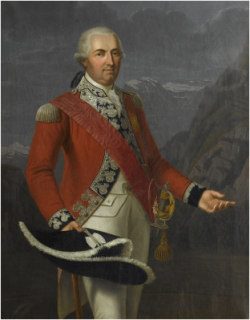 Major von Bachmann, Swiss Guard We do not live in a republic yet, you hideous little gremlin, but you have revealed yourself as the traitor you are! I cannot suffer this insult to my liege any longer! Your second will discuss this further with mine own and we will meet on the morrow with pistols or you will be known as a coward as well as a traitor!
|
| # ? Nov 13, 2012 02:42 |
|
Enjoy posted:Major von Bachmann, Swiss Guard I accept! As the challenged, I reserve the right to choose the weapons we duel with...and I choose our tongues! Let us debate the matters of the day, and truly see whose opinions are superior!
|
| # ? Nov 13, 2012 02:45 |
|
 The American people and government remain friends to France. I requested a generous aid package from my government, but thanks to the efforts of intransigent people within our administration, I was able to obtain only a fraction of what I hoped to deliver. I have no doubt that Lafayette's proposed trade agreement would help to ease any misgivings that our Secretary of the Treasury has about further aid. In the meantime, I plan to advocate for Franco-American Friendship Societies to be established in my country, whereby ordinary free citizens of America who wish to show their support for the French crown and people can do so as they please. Further, I would like to remind you all that whatever your political positions are, the ravenous wolf King George III still lurks just across the English Channel, no doubt planning to take advantage of your disunity.
|
| # ? Nov 13, 2012 02:51 |
|
I will take the role of Louis Stanislas, the comte de Provence, and regent of the Kingdom of France. True noblemen can reach me through PMs, and lesser nobles can go through the hassles of using email at ktakanago@gmail.com.
|
| # ? Nov 13, 2012 02:59 |
|
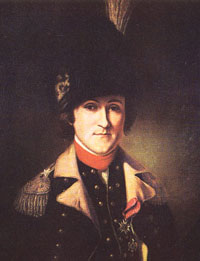 Charles Armand Tuffin, marquis de la Rouerie Extracts from a speech given in Rennes at a meeting of the newly formed Breton Association posted:... so they call us highwaymen. If you go to rob a man's home and he hides his gold in the safe, you may not call him a thief - you also don't call yourself the rightful government. *laughter from crowd* No, we are not highwaymen. We are the people of Brittany who refuse to allow this unlawful government, ordained not by God or even the majority of men, to steal the product of our hard work. We do not allow them to take food from starving children or gold from poor women. We do not allow or consent to the extermination of our culture and language. Extracts from a speech given in Leon to a mass of peasants posted:... so you look to the King. But did the King not receive ample petitions begging him to veto the budget and remove Sade? *cries of death to Sade are heard* Yes, the King ignored us and backed Sade instead! He allowed Sade to stay Minister and signed the budget calling for your deaths, our deaths!
|
| # ? Nov 13, 2012 03:00 |
|
sniper4625 posted:I accept! As the challenged, I reserve the right to choose the weapons we duel with...and I choose our tongues! Let us debate the matters of the day, and truly see whose opinions are superior! I have been denied satisfaction! You are no gentleman.
|
| # ? Nov 13, 2012 03:01 |
|
 Just a note, please try to limit your actions to 5 or 6 per turn. This is to make writing turns easier for CVortex and I and increase the speed at which we can operate. Just a note, please try to limit your actions to 5 or 6 per turn. This is to make writing turns easier for CVortex and I and increase the speed at which we can operate.  Thank you.
|
| # ? Nov 13, 2012 03:13 |
|
 I have been reviewing the situation in Bretagne, and I wish to say that true government is intended to protect the rights of all its citizens. We can see this in the reflections of your Baron Montesquieu on the greatness of the Romans, as well as in the revolutionary musings of that great citizen of Geneva, JJ Rousseau. Marquis Tuffin served with distinction in the cause of freedom in the New World, and deserves to be treated with respect. The principles of Hobbes and Locke state that when any population is oppressed by their government, or any slave oppressed by their master, then a state of war exists between them. To single out Bretagne for onerous taxation is to create an entire class of citizens that are, at the same time, not treated equally. I respectfully implore the members of the French Assembly to repeal the taxes levied on the Bretons and to consider other means of enhancing the state's treasury. The taxes so levied as as tyrannical as any levied against our continent by the King of England.
|
| # ? Nov 13, 2012 03:24 |
|
 Traitor Tuffin has taken up arms against France, and must be prepared to face the repercussions thereof. If he were to give himself up to the National Guard, then perhaps leniency would be shown to the people of Brittany. If not, the status quo must prevail.
|
| # ? Nov 13, 2012 03:27 |
|
Georges Cadoudal Excerpt from "An Open Letter to the Bretons" posted:Devezh mat, ma Breurdeur!
|
| # ? Nov 13, 2012 03:48 |
|
 Louis Stanislas Xavier, comte de Provence, and Regent of the Kingdom of France and Navarre Let it be known that my brother, Louis XVI de Bourbon, has been imprisoned by the shameful, treasonous government in Paris. As such, he has been unfortunately rendered completely incapable of ruling as a good Bourbon king should and as the Kingdom of France and Navarre requires. It is up to the good French nobility to help Louis XVI out of his predicament. More than that, it is up to me, Louis Stanislas Xavier, comte de Provence. I declare myself Regent of the Kingdom of France and Navarre, acting in lieu of Louis XVI, who is held powerless. Do not worry, my brother! You have many enemies in Paris, but you have many friends abroad! I, and all the loyal noblemen who have escaped the peasant and bourgeois terrorists, will do our very best to rescue you from their clutches! We still stand by your side! The crimes and injustices committed by the "government" send tears through our noble faces and aches through our noble hearts. Now, let me say this to the radicals of France: if you lay one single finger on my brother, the King, and harm him in any way, the vengeance delivered by the rest of Europe will be swift and brutal. If you are wise, and you respect his rights, then we may choose to stay our hand and be merciful when I and my forces return to restore the rightful power of the French monarchy and aristocracy. In short: your time is short. The émigrés will soon return to France.
|
| # ? Nov 13, 2012 04:22 |
|
 An open letter to the people of France Malcontents stir up the countryside, and Monarchists threaten to return and force us back in to serfdom. Lies and betrayal are their weapons, and your honest toil is their sustenance. Will we, the free peoples of France be content to submit once more to an absolute tyrant? Never! I call upon all those who love liberty, who love the ideals of the Revolution, who love living a free man to join us! Join the Jacobins! Join the National Guard! Join us and fight for your liberty! Renounce the one who travels among you, seeking to put you back in chains! Seize him and deliver justice, for he is your enemy! Any man who bring a monarchist to justice is a righteous man, for the monarchists are the enemy of the people, and have already declared war. The question is, people of France, will they win unopposed? Not so long as I draw breath! To the members of the Assembly - we must move swiftly, for the forces of reaction gather at our very doorstep. We must ensure our armies remain strong, that we may purge our homeland of traitorous elements in safety. We must declare a State of Emergency, that we may effectively take action to safeguard our beautiful nation. Finally, to the hungry and poor - the Jacobins hear you. Jacobin clubs across France are distributing grain from our facilities at great cost to ourselves, (though to read the news you would not know it.) Now word has reached me that the Bretons, already seeing fit to abjure their fair share of taxation have now taken to hording food. They would see themselves fat and happy while you starve! Shall we let the Breton, who sees himself better than you, the people of France, engorge himself while your children bloat from lack of food? An outrage! A disgrace! Rise up, people of France, rise! Vive la France!
|
| # ? Nov 13, 2012 04:31 |
|
 Marquis de Lafayette, Commander of the National Guard I call on the King of France to denounce Louis Stanislas Xavier as an enemy of the people. He seeks to wage war on us, ostensibly in the name of the Bourbons, and it must be made clear that his justification is bankrupt and merely a front for the tyrants of Europe to crush French liberty. The people will surely rally around their Sovereign if he does his patriotic duty - but if he betrays the nation than all hope in him will be lost, and I fear hate, chaos and anarchy will destroy our country.
|
| # ? Nov 13, 2012 04:45 |
|
 Charles Armand Tuffin, marquis de la Rouerie An Open Response to an Open Letter to the people of France posted:Whom has declared war on whom? Have you seen the budget passed by the radicals in the capital? Taxes on Bretons, and Bretons alone, were tripled from that asked of the rest of France - taxes that as you are all aware are hideously huge as it is. That budget was a declaration of war on the Breton people and the poor across France. Take note of how they fire shots into the masses and call the masses murderers!
|
| # ? Nov 13, 2012 04:51 |
|
 An Open Response to an Open Response to an Open Letter to the People of France Farmers of France, the Breton would tempt you with his siren's song. But be warned, and look to his words - he speaks of rights for the Occitans, for the Bretons, a return to the sheltering embrace of the nobility. Is that the spirit of 1789? Should France exist at the whim of the aristocracy, surviving off whatever scraps they deign to throw us? No! Should criminals, traitors, and rebels be permitted to walk free? No! Know this - the Jacobins have forced through a budget that will see more money in your pocket, more seeds in your field, more money on your table, if you will just give it time to work. Would you abandon the gains of the Revolution so quickly? Would you cast away your dignity as proud French men and women to beg at the feet of the nobility? For those in need, emergency supplies will be forthcoming from the nobility, but they will not be a gift to be begged for, but rather a small repayment of the vast riches that you have paid them over the past centuries. Would you side with a rebel, and at the same time raise your wrists for the manacles? Or will you stand tall, proud, free and virtuous, and fight for France? To side with the Breton is to side against France! The path of the Breton is subservience to aristocracy, is slavery! The path of the Jacobin is the path of a free man. I can make it no clear than that. May you all choose wisely. Do not forget that you can stop in any Jacobin Club, be it Paris, Lyons, or Marseilles, and you will find a warm meal. While we cannot feed all of France, we can do our best to feed some of it. Would that others would attempt the same. Legislative Proposals Amended Emergency Food Act: The people are still starving, and the King's promises fell through. Enough is enough. City Guard Act: Legalize the Revolutionary Guard. Not all men are capable of serving in the official Armed Forces, but all should have a chance to serve France with martial valor. Traitors to France Resolution: Officially designate Tuffin as an enemy of the people, and offer a reward for his capture.
|
| # ? Nov 13, 2012 05:00 |
|
 Charles Armand Tuffin, marquis de la Rouerie An Open Response to an Open Response to an Open Response to an Open Letter to the people of France posted:Yes, I speak of Rights! Why should I not? What was the spirit of 1789 sold as if not the spirit of Rights?! Rights for all! Rights for the Bretons! Rights for the Occitans! Rights for the French! Who is this Robespierre to tell me, to tell you, to stop talking of Rights? He is a traitor to his own Revolution! That is the saddest and most bemusing thing in all this. That I, whom he calls a traitor to Revolution, is talking of the Rights of Man - whilst he, whom he fancies the leader of the Revolution, tells me to stay in my place under the boot of Paris! I laugh at these people who aspire to the title of illustrious and humane.
|
| # ? Nov 13, 2012 05:09 |
|
 Marquis de Lafayette, Commander of the National Guard We have no need for another militia, for the National Guard already fills that role. Granting the explicitly radical "Revolutionary Guard" any authority would be a mistake and I call on the Legislative Assembly to reject it. Instead, I suggest providing the National Guard - which is now an all volunteer force where the members must provide their own weapon and uniform - with funding from the state coffers to increase recruitment and afford better training. The Reinforce the National Guard Act will designate two credits from the current "police" budget to go to this necessary institution.
|
| # ? Nov 13, 2012 05:11 |
|
a bad enough dude posted:
 Hear, hear! Citoyen de Lafayette is a true embodiement of Revolutionary ideals, and I agree most wholeheartedly. With regards to your concerns about the Revolutionary Guard, please do not be alarmed by the name - think of it as a neighborhood watch, writ large! While the National Guard is an excellent organization, it is a mainly middle class organization. Should not the poorest be allowed to contribute to the common defense? To the Traitor Tuffin, and to all of France The notion that you understand the ideals of 1789 is laughable. You seize upon an unfavorable budget to declare open rebellion, then declare that the people should beg their nobility for the sustenance to live! Is that any way for a man to live? Dependent on the whim of some petty local tyrant? I say, non! To the people: Read his words. Tuffin speaks again and again of the rights of Bretons, the rights of Occitans. The good people of France are but pawns in his ambitious adventures. Do not be fooled. Legislative Proposal The Final Contribution of the Emigre: Seize the possession of all goods, properties and wealth of any emigres, and use it to pay for two things: an expansion of the National Guard, Military and Police, and food for the poor. Any aristocratic emigrant will be allowed to leave, but will forfeit all their possessions.(*Second proviso to be debated)
|
| # ? Nov 13, 2012 05:19 |

















